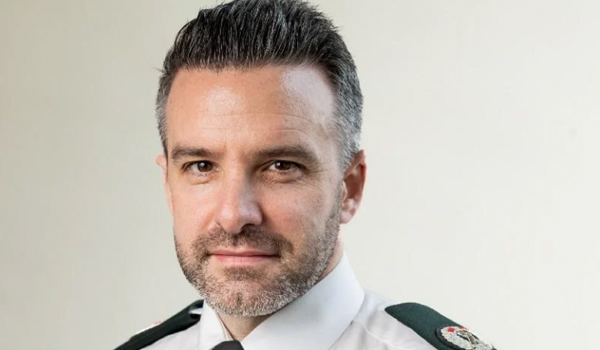Financial position of PSNI ‘out of step’ with scale of threat, warns deputy chief constable
The Police Service of Northern Ireland (PSNI) has warned that the political priority afforded to policing “remains out of step” with the scale and seriousness of the daily threat environment”.
Presenting the latest Accountability Report to the Northern Ireland Policing Board on behalf of the chief constable, Deputy Chief Constable Robert Singleton said “critical arguments for funding are not sufficiently reaching, or resonating with, those making budgetary decisions”.
“While additional pressures in health and education are often raised and addressed, policing continues to absorb unique and unfunded costs, for example, close protection for at risk individuals, the ongoing terrorist threat, and community tensions requiring intensive and nuanced policing,” he said.
“These are not discretionary expenses, they are the cost of stability in our society. And yet, the political priority afforded to policing remains out of step with the scale and seriousness of the threat environment we manage daily.
“Benchmarking police funding by conventional UK standards does not account for the complexity of policing in a society emerging from conflict.”
Mr Singleton said visible crime figures – which saw a reduction of more than 8,200 recorded crimes in 2024/25 – tell only part of the story.
“Beneath them lies a deeper and more enduring challenge, one that demands sustained investment in proactive and preventative policing, community reassurance, and public safety,” he said.
“Our capacity to deliver those outcomes is diminishing. Neighbourhood policing has declined to the point that many communities no longer see a meaningful presence. We face stark gaps in specialist areas such as the management of violent and sexual offenders.
Our Major Investigation Team ratios are significantly below those in England and Wales. We are also managing high-risk threat scenarios, particularly around violence against women and girls without the minimum workable resource required to deliver outcomes.”
Mr Singleton said the burden of legacy investigations in particular also remains significant.
“We currently have 197 unresolved cases relating to the Troubles,” he said.
“These require careful, resource-intensive investigation, yet there is no adequate ringfenced or recurring funding to support them.
“Unless the Executive and Westminster can agree an enduring solution, these pressures will continue to compromise day-to-day policing.”


